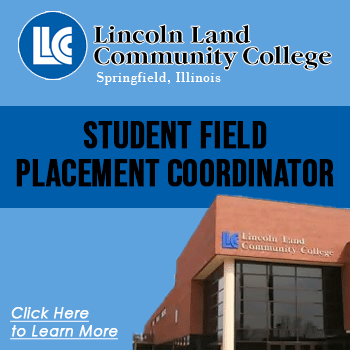This job has Expired
USDA-ARS Postdoctoral Fellowship on Two, Four, Six and Eight, Protecting Two and Four Legged Animals from Six and Eight: Kansas
Job Description
Click for a hub of Extension resources related to the current COVID-19 situation.
- Agency
- U.S. Department of Agriculture (USDA)
- Location
- Manhattan, Kansas
- Job Category
- Post Doctoral Appointments
- Salary
- Monthly Stipend TBD
- Last Date to Apply
- 01/20/2023
- Website
- https://www.zintellect.com/Opportunity/Details/USDA-ARS-2022-0437
- Description
- *Applications may be reviewed on a rolling-basis. ARS Office/Lab and Location: A research opportunity is currently available with the U.S. Department of Agriculture (USDA) Agricultural Research Service (ARS) within the Foreign Arthropod-Borne Animal Diseases Research Unit (FABADRU) at the National Bio- and Agro-defense Facility located in Manhattan, Kansas. The Agricultural Research Service (ARS) is the U.S. Department of Agriculture's chief scientific in-house research agency with a mission to find solutions to agricultural problems that affect Americans every day from field to table. ARS will deliver cutting-edge, scientific tools and innovative solutions for American farmers, producers, industry, and communities to support the nourishment and well-being of all people; sustain our nationís agroecosystems and natural resources; and ensure the economic competitiveness and excellence of our agriculture. The vision of the agency is to provide global leadership in agricultural discoveries through scientific excellence. The National Bio- and Agro-defense Facility is a state-of-the-art research center for studying high consequence pathogens of medical and veterinary importance in Manhattan, Kansas. (National Bio and Agro-Defense Facility | USDA) The Foreign Arthropod-Borne Animal Diseases Research Unit (FABADRU) is one of three research groups within NBAF. The FABADRU investigates foreign arthropod-borne animal diseases such as Japanese encephalitis and Rift valley fever virus. The objective of NBAF and the research units is to protect American agriculture from foreign and emerging pathogens. Research Project: The participant will use cutting edge techniques to investigate all aspects of mosquito-borne viral transmission from the insect vectors, vertebrate hosts (hosts), virus genotypes (pathogen) and transmission to the environmental factors (environment) associated with insect vector and viral outbreaks. This flexible project can encompass all aspects of Rift valley fever or Japanese encephalitis viruses, although it can also focus on the candidates interests in one of the arms of the epi-triad or insect vector mentioned previously. The participant will collaborate with multiple teams of scientists from around the world to identify factors related to vector-borne viral transmission with the objective of (1) early detection of an exotic pathogen to the US, (2) mitigation strategies in the event of an introduction, and/or (3) quantifying risk factors related to geographic or temporal transmission risk. Some travel may be required. Learning Objectives: The participant will learn complementary skills to balance their existing knowledge base. This can include, but is not limited to, basic epidemiology, virology, cell biology, entomology, nanoparticle construction, and a little mechanical and electrical engineering to construct surveillance traps. Some of the projects use machine learning and artificial intelligence. The participant will have their own projects as well as contribute to other project in the team which will develop soft skills such as leadership/team skills while interacting with the various scientists in Europe, Korea, South Africa, Kenya, and Uganda. The participant is expected to present data at international conferences which will provide extensive networking opportunities. Mentor(s): The mentor for this opportunity is Lee Cohnstaedt (Lee.Cohnstaedt@usda.gov). If you have questions about the nature of the research, please contact the mentor(s). Anticipated Appointment Start Date: April 2023. Start date is flexible and will depend on a variety of factors. Appointment Length: The appointment will initially be for two years but may be renewed upon recommendation of ARS and is contingent on the availability of funds. Level of Participation: The appointment is full-time. Participant Stipend: The participant will receive a monthly stipend commensurate with educational level and experience. Citizenship Requirements: This opportunity is available to U.S. citizens, Lawful Permanent Residents (LPR), and foreign nationals. Non-U.S. citizen applicants should refer to the Guidelines for Non-U.S. Citizens Details page of the program website for information about the valid immigration statuses that are acceptable for program participation. ORISE Information: This program, administered by ORAU through its contract with the U.S. Department of Energy (DOE) to manage the Oak Ridge Institute for Science and Education (ORISE), was established through an interagency agreement between DOE and ARS. Participants do not become employees of USDA, ARS, DOE or the program administrator, and there are no employment-related benefits. Proof of health insurance is required for participation in this program. Health insurance can be obtained through ORISE. Questions: Please visit our Program Website. After reading, if you have additional questions about the application process, please email USDA-ARS@orau.org and include the reference code for this opportunity.
- Qualifications
- The qualified candidate should have received a doctoral degree in one of the relevant fields, or be currently pursuing one of the degrees with completion before April 1, 2023. Degree must have been received within the past five years. Preferred Skills: The ideal candidate will have a Ph.D. and have a background in vector-borne diseases. Past post-doctoral experience is desired. Significant evidence of publishing and presenting past research. Due to the incredibly broad and flexible set of potential projects, the candidate would be self-motivated and driven with the career goals of academia or industry. The participant needs to be independent and well organized because the participant will have their own project and be expected to collaborate with others on their projects. Good communication is essential given the various cultures and teams with whom the participant will be collaborating with and learning from. The candidate likely will have to travel both domestically and abroad for some of the experience.
- Contact Person
- USDA-ARS@orau.org
Bookmark the permalink .
Comments are closed.
*Please mention you saw this ad on AcademicJobs.*




